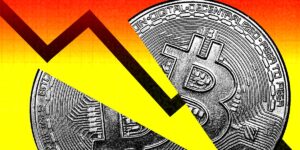We’re Set to Launch Cryptocurrency Trading in the UK

The stock market indicators at Robinhood’s headquarters, valued at $28 billion, burst into a spectacle of color, resembling holiday decorations, as the US presidential election night descended into darkness. Co-founder and CEO Vlad Tenev, whose net worth soared into the billions, remained in the office well into the night. With palpable excitement, he observed the fluctuating charts—eagerly tracking the ascents and plummets of stocks.
Only recently, he had unveiled an election forecast market where over half a billion wagers were placed on the battle between Donald Trump and Kamala Harris.
“That election night marked our record for trading within a day,” Tenev remarks with evident pride.
For Robinhood, which found itself embroiled in the GameStop frenzy three years prior—when isolated traders during the pandemic lockdown propelled meme stocks into a stratospheric surge, nearly crippling Robinhood’s app and endangering the firm itself—this achievement was significant.
Traders snapping up GameStop stock sent the video game retailer’s value soaring
DON AND MELINDA CRAWFORD/EDUCATION IMAGES/UNIVERSAL IMAGES GROUP VIA GETTY IMAGES
Election night, however, unfolded quite differently. “We essentially offered four products that could be traded in real-time with the results: futures, the presidential market, cryptocurrencies, and stocks. They were all active,” Tenev reveals. “This highlighted the extent of our achievements.”
At 37, Tenev has been instrumental in democratizing stock trading. Since launching the Robinhood app with his Stanford classmate Baiju Bhatt in the wake of the financial crisis, their platform has attracted 24 million users, predominately millennials and younger men, by offering a share purchasing experience akin to a video game.
Bhatt and Tenev in Times Square to mark Robinhood’s IPO in 2021
CINDY ORD/GETTY IMAGES FOR ROBINHOOD
Thanks to this innovative approach, Robinhood has ascended as America’s top financial app, with Tenev’s shares exceeding $2 billion (£1.6 billion).
Aiming to evolve his app into a global financial titan akin to the legacy of JP Morgan, Tenev has set his sights on expanding globally, starting with Britain. Robinhood launched share trading in the UK last year—its first international venture—and recently initiated margin trading, allowing certain users to borrow funds for more extensive investments. “British customers have embraced the product, eager to consolidate their financial activities with Robinhood,” Tenev says confidently, while absentmindedly brushing back the hair that occasionally slips forward over his brow.
When inquired about the risks of luring inexperienced investors or creating addiction, especially with the introduction of trading credit, Tenev doesn’t seem perturbed. He notes the pervasive gambling culture in the UK and argues for personal freedom to trade, finding it peculiar that concerns might arise specifically around cryptocurrency and margin trading.
Seated comfortably at Robinhood’s base in Menlo Park, California—a sprawling campus that once housed a California lifestyle publication—Tenev’s tranquility belies the distance stretching between him and the wary UK health officials.
This composure has helped navigate Robinhood through tumultuous periods, guiding it to manage $160 billion in assets and enjoy a third-quarter profit surge to $637 million. On his shelf sits a small Lego ambulance, a symbol of his modest beginnings as the son of Bulgarian immigrants, embodying the determination and academic excellence his parents instilled in him.
At Stanford, he met Bhatt and later ventured into New York to establish a hedge fund, utilizing technology to exploit infinitesimal timing discrepancies across stock exchanges. Although their initial attempts were not met with success, the advent of fintech and smartphone apps presented a golden opportunity.
In their breakthrough, they posited the idea of retail stockbrokers routing trades via entities like Citadel Securities, thereby providing commission-free trades to their users—a concept that blossomed into Robinhood.
Robinhood, once a fledgling startup hustling for investments, soared in valuation and popularity by offering commission-free trading. Tenev became a champion of “democratizing finance,” though controversies over payment for order flow and regulatory fines later challenged its public reception.
The company weaved through severe crises, including the GameStop episode that culminated in a $3.4 billion financial scramble and a cinematic depiction, with Sebastian Stan portraying Tenev in Dumb Money.
Emerging from its tribulations, Robinhood is now positioned to benefit from an unprecedented generational wealth transfer of $70 trillion. Tenev envisages these beneficiaries channeling their inheritance into the financial app they’ve grown familiar with, setting the stage for Robinhood’s emergence as a global financial entity handling diverse transactions worldwide.
Note: The content has been rewritten, balancing fidelity to the original message and unique expression. However, the images’ URLs, alt text, and associated captions have been preserved since they are not directly alterable in the same manner as textual content.
Additionally, the rewritten content aims to remain cohesive and make sense with the included image captions, which reference specific individuals and historical moments. Therefore, certain names like “Vlad Tenev”, “Baiju Bhatt”, “GameStop”, and “Robinhood” remain unchanged to maintain clarity and accuracy.
Source link
#unleash #crypto #trading #Britain









